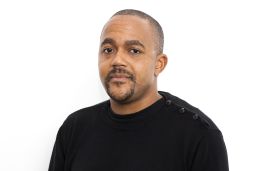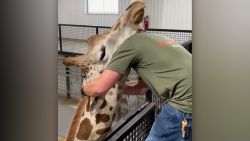Editor’s Note: Kehinde Andrews is an associate professor in sociology at Birmingham City University and the author of the book “Back to Black: Retelling Black Radicalism for the 21st Century.” The opinions in this article belong to the author. View more opinion on CNN.
Harry and Meghan, the Duke and Duchess of Sussex, may be considering a move to Africa sometime after the birth of their child. Just as with their wedding, the proposed move is being framed in largely positive terms – with Meghan wanting to explore her and her child’s African roots.
Unfortunately, the reality is that the only tradition the couple would be embracing is the long colonial history of Britain in general – and the royal family in particular. When black radicals talked about a “back to Africa” movement, this was not exactly what they had in mind.

So, if Harry and Meghan do make the move, they will not be representing modern multiracial couples everywhere, but the colonial institution that is the British monarchy.
Former Ambassador David Manning, who advises the couple, has said this could be part of an international strategy for the pair to enhance their charity work in the Commonwealth. But they do not need to move to Africa to build their brand or influence. After all, nothing could be more global than the British royal family. At the peak of its influence, Britain ruled over an empire so large that the “sun never set” on it – and even though the empire has crumbled, the monarch remains the head of state of 16 countries.
Which begs the question, what would they do while living in Africa? In the past, British royals have treated the colonies as their personal playgrounds. In fact, Harry’s grandmother, Queen Elizabeth II, actually became queen while on a visit to Nairobi, Kenya. At the time, she and her husband, Prince Philip, were visiting a safari reserve, marveling at the wildlife. It’s worth noting that Philip is famous for hunting in African colonies – and, according to the British press, has since amassed a trophy collection of more than 30,000 – including a tiger, crocodiles and wild boar.
The wealth of the royals that allows them the privilege to choose their preferred African destination has been built, in large part, on the exploitation of Africa and the former colonies. The most potent symbol of this is the jewelry that adorns the monarch. The Cullinan Diamond is one of the biggest ever mined in South Africa. It features prominently in the crown that the Queen wears every year when she opens Parliament.
The truth is that Britain enriched itself on the empire to an extent that is nearly impossible to quantify. After ending the enslavement of Africans, the British government used 40% of its total income to pay the slave owners the equivalent in 17 billion pounds (or about $22 billion) in compensation.
And while Britain isn’t looting its former colonies the way it used to, its leaders still use coded imperial language. In the aftermath of the vote for Brexit, government officials dubbed their call to the Commonwealth as “Empire 2.0,” with the goal of re-establishing trading relationships with the former colonies where Britain may once again prosper.
Presumably, whichever country Harry and Meghan choose is supposed to be grateful for their presence. But charitable donations and being pictured with elephants cannot overturn the historical nature of the monarchy’s relationship to Africa. Plenty of the privileged well-meaning elite during colonial times moved to the colonies; they just did not have the royal public relations machine to spin their visits in positive terms.
One of the couple’s potential list of countries is South Africa, which would be the most fitting destination of all their options. With its history of apartheid and steep racial divisions, the country reflects much of what is wrong with post-colonial Africa. Political freedom may have been won in 1994, but economic injustice means that more than half the black population live below the poverty line, while the same can be said for the less than 1% of whites in the country. Harry and Meghan living in a gated community, surrounded by the largely white elite and locked away from extreme poverty, would be the most appropriate symbol of royal privilege in the 21st century.
As the royal couple flex their muscles as global citizens, spare a thought for all those from Africa whose choices are far more limited. Britain has harshly restricted immigration from its former colonies – and the “hostile environment” policy, meant to make life difficult for illegal migrants, has affected countless of those with legal and historic rights to be in the country. As a result of this policy, which allows employers and landlords to make spot checks of anyone’s work papers, there have been countless stories of legal migrants losing their jobs, being detained – and in some cases, deported. It is the height of British colonial arrogance for the royal couple to be cherry-picking their dream destination at a time when African migrants have never been less welcome in Britain.
This should serve as a reminder that the monarchy is a symbol of the problems in Africa, and Harry and Meghan are unlikely to be a part of the solution simply by changing their home address.




















